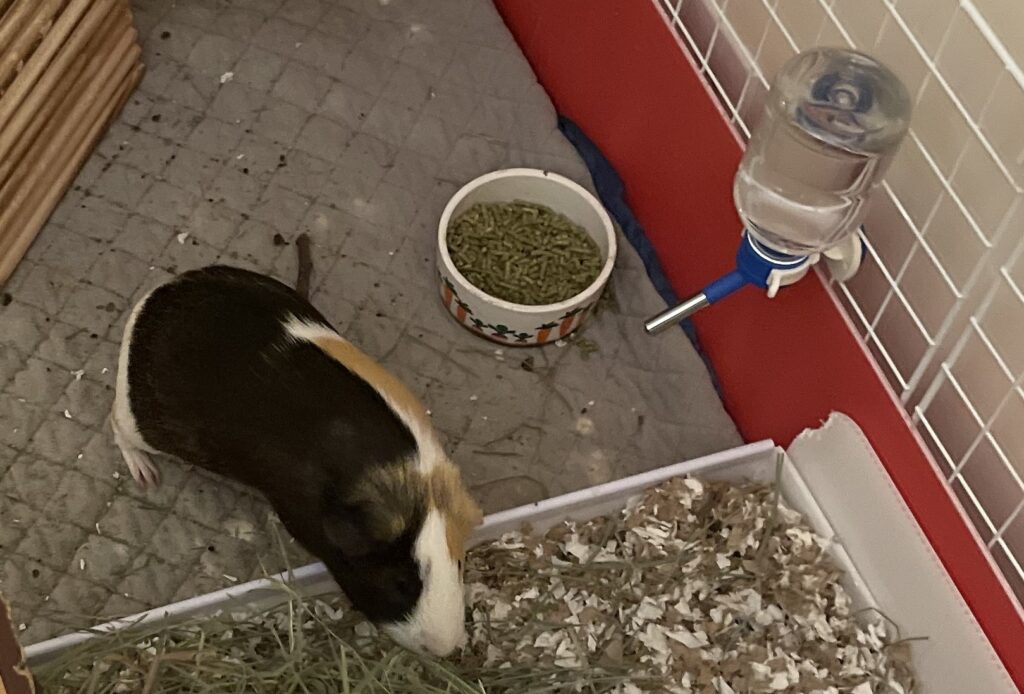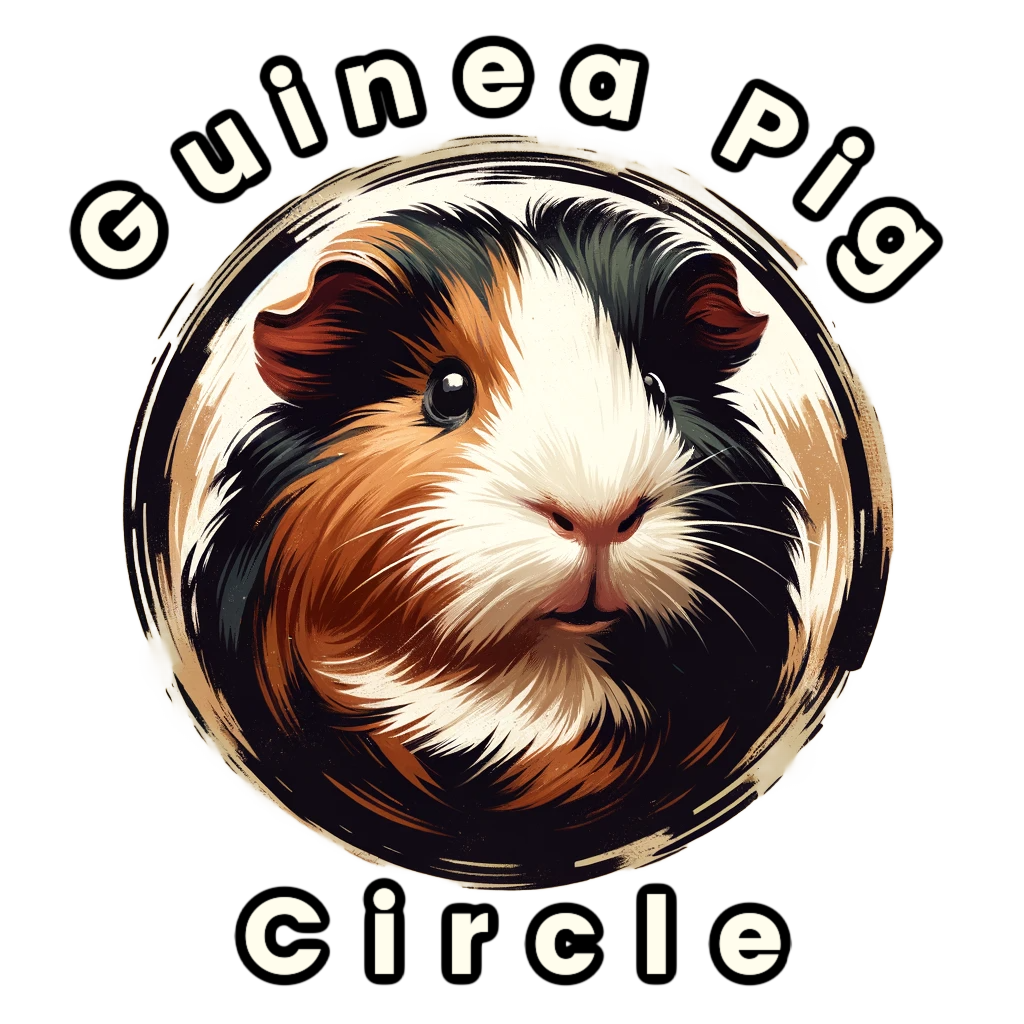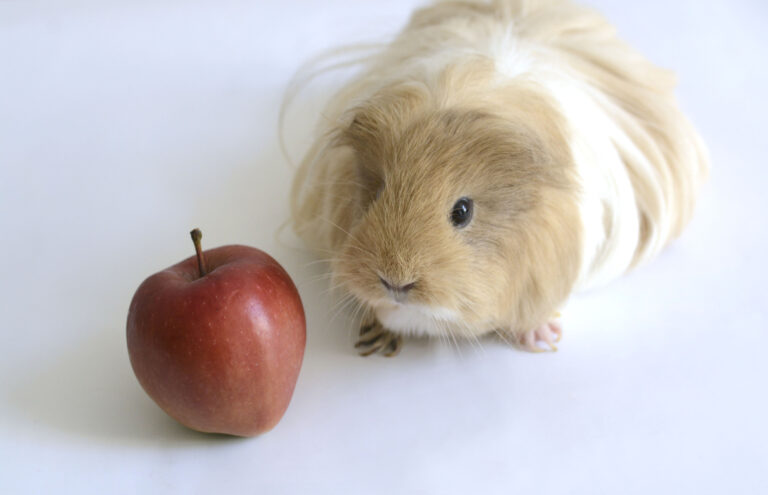5 Reasons to Rethink Vitamin C in Your Guinea Pigs’ Water Bottle
Introduction: A Splash of Caution
It’s one of those myths that just won’t die: add a few drops of vitamin C to your guinea pig’s water, and you’ll meet their nutritional needs. On the surface, it seems like a convenient hack for guinea pig care. However, diving deeper into the habits and needs of these delicate animals reveals a nuanced truth. We know that guinea pigs need vitamin C but never add Vitamin C Drops in Your Guinea Pig’s Water.
Caring for guinea pigs’ nutrition and hydration is complex, requiring fresh water and varied foods. Recognizing vitamin C’s volatility in water and the risk of an unbalanced diet is essential. We need to reevaluate our pet care strategies, prioritizing optimal health for our guinea pigs. Key Takeaways:
- Guinea pig care myths can lead to inadequate nutrition and hydration strategies.
- Proper guinea pig feeding requires a balanced diet beyond just vitamin C supplements.
- Fresh water for pets is vital, unadulterated by any dietary supplements.
The Lowdown on Vitamin C Dilution
Think of adding just a pinch of salt to a pool and hoping it’ll taste salty—it doesn’t make sense. Similarly, putting vitamin C drops in a guinea pig’s water dilutes it too much. Your guinea pig can’t possibly drink enough to get their needed vitamins. Proper guinea pig health hinges on attention to such details, as getting enough vitamin C is vital for their wellbeing.
Vitamin C Stability: A Slippery Slope
Imagine adding a few drops of vitamin C to your guinea pig’s water, thinking it’s a beneficial health measure. Here’s the twist: Vitamin C stability is a slippery slope. Exposed to the air and light in that bottle, the vitamin C starts breaking down almost immediately. The supposed health boost for your guinea pig turns out to be ineffective, lacking the essential vitamin. It’s a bit like making a cup of tea, only to have it vanish before you can drink it. So, when considering guinea pig care, perhaps it’s best to sidestep those vitamin C drops for their water.

A Picky Drinker’s Dilemma: Altered Taste
Imagine you’re ready for a tasty drink, but it’s just not right. That’s what happens to guinea pigs when we add vitamin C to their water. They’re picky about their drinks, and changing the taste can make them refuse to drink. This can lead to dehydration, a serious issue for their health. It makes us question adding vitamin C this way and reminds us that our best pet care intentions might not always be the right approach. It emphasizes the need for fresh water for our pets.
The Challenge of Monitoring Vitamin C Intake
Monitoring water intake feels like trying to hit a moving target, especially with vitamin C for guinea pigs. When you thought adding vitamin C drops to their water was a clever shortcut, you didn’t think about how their daily hydration needs change. On cooler days or when they’re not thirsty, they drink less, missing important nutrients. This turns what should be exact into guesswork, leaving you worried about whether they’re getting enough of this vital vitamin.
A Balanced Diet: More Than Just Pellets
Imagine strolling through the supermarket, eyeing just one shelf, and convincing yourself it holds everything you need for a balanced diet. Sounds absurd, right? This is akin to feeding our guinea pigs a diet made up exclusively of guinea pig pellets.
Sure, these pellets are often fortified with vitamin C, but – vitamin C degradation happens even before you open that bag. The nutrient’s instability means its potent benefits dim with time, exposure to light, and air. But there’s more to guinea pig nutrition than this single source. A mosaic of fresh vegetables, high in vitamin C sources like bell peppers and leafy greens, paints a fuller, richer picture of health, offering a smorgasbord of vitamins, minerals, and the much-needed fiber. Let’s not tie our pet’s wellbeing to the solitary pillar of pellets. Diversify. Because in variety, there’s vitality.
Green is the New Orange: Fresh Vegetable Solutions
You know, diving headfirst into the world of guinea pig nutrition can feel akin to untangling a heap of mismatched socks. It’s complex, often confusing, but utterly rewarding once you’ve got it sorted. Case in point: the vitamin C debacle. For the longest time, I thought the straightforward solution was tossing a few vitamin C drops into their water—but, oh, was I mistaken. Here’s the game-changer: fresh vegetables. Imagine bell peppers and leafy greens not just as food, but as vibrant, life-sustaining morsels. We’re talking about a bounty of color that doesn’t just brighten up their enclosure but ensures a stable and sufficient vitamin C intake. It’s a simple switch, swapping out the precarious for the wholesome, yet it revolutionized how I approach my little buddies’ diet. Truly, in the quest for optimal guinea pig health, green is the new orange.
Healthy Hydration Habits: Fresh Water Wins
Ensuring our guinea pigs have access to clean, fresh water every day is paramount. It’s about more than just hydration; it’s a cornerstone of guinea pig health and well-being. By steering clear of vitamin C drops and focusing on proper guinea pig feeding with fresh vegetables and reliable guinea pig nutrition sources, we safeguard their vitality and happiness.
Read next: The emotional intelligence of a guinea pig

